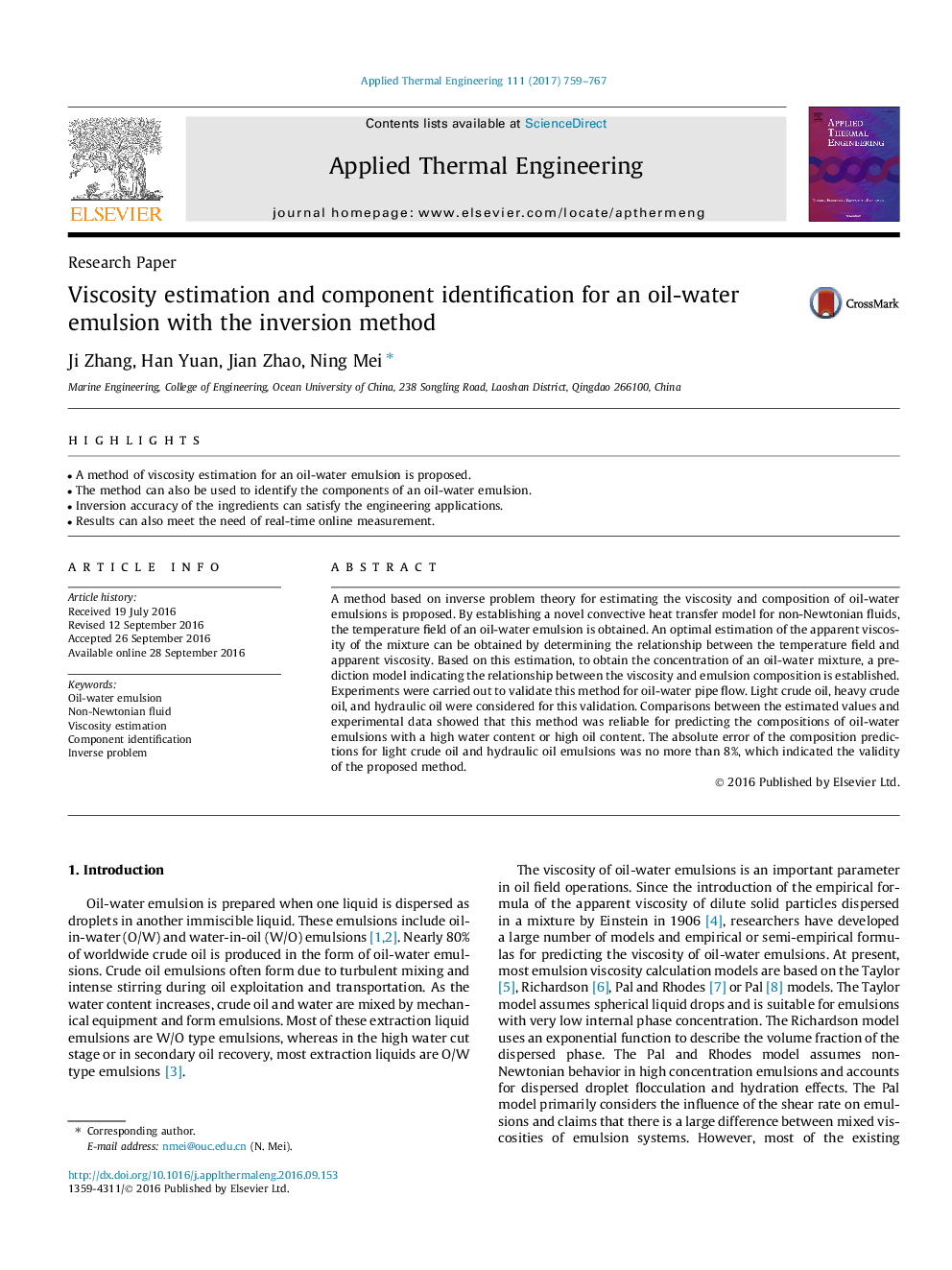| Article ID | Journal | Published Year | Pages | File Type |
|---|---|---|---|---|
| 4992158 | Applied Thermal Engineering | 2017 | 9 Pages |
Abstract
A method based on inverse problem theory for estimating the viscosity and composition of oil-water emulsions is proposed. By establishing a novel convective heat transfer model for non-Newtonian fluids, the temperature field of an oil-water emulsion is obtained. An optimal estimation of the apparent viscosity of the mixture can be obtained by determining the relationship between the temperature field and apparent viscosity. Based on this estimation, to obtain the concentration of an oil-water mixture, a prediction model indicating the relationship between the viscosity and emulsion composition is established. Experiments were carried out to validate this method for oil-water pipe flow. Light crude oil, heavy crude oil, and hydraulic oil were considered for this validation. Comparisons between the estimated values and experimental data showed that this method was reliable for predicting the compositions of oil-water emulsions with a high water content or high oil content. The absolute error of the composition predictions for light crude oil and hydraulic oil emulsions was no more than 8%, which indicated the validity of the proposed method.
Related Topics
Physical Sciences and Engineering
Chemical Engineering
Fluid Flow and Transfer Processes
Authors
Ji Zhang, Han Yuan, Jian Zhao, Ning Mei,
